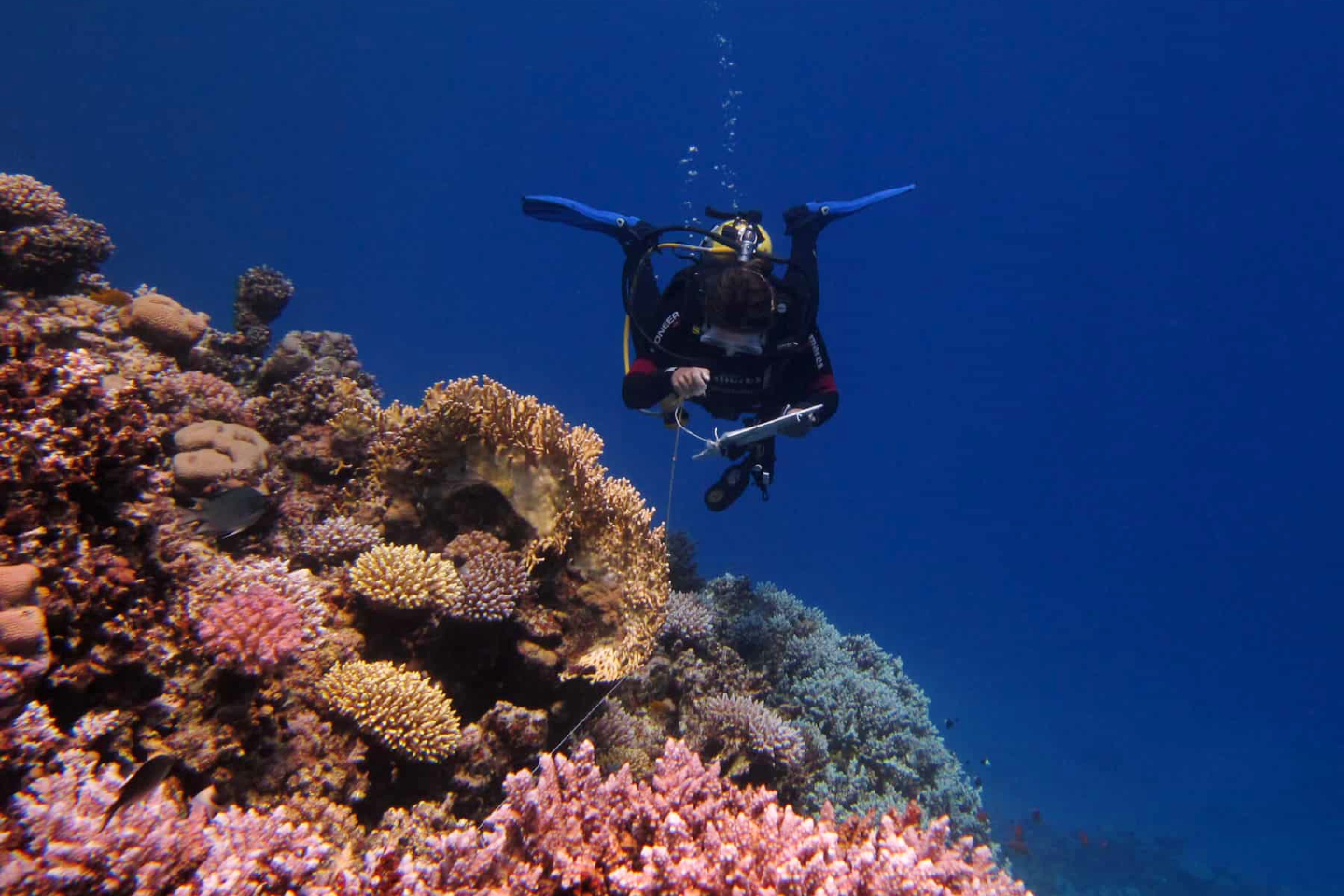
Reef Check Malaysia works closely with the government, resorts and the dive community (Photo: Reef Check Malaysia)
Those lured by the call of the ocean often do not hear the cries of marine life struggling to grow beneath its surface. Shiseido aims to do something about that with its Blue Project, which has the theme “Respect for Oceans”.
The Japanese beauty group launched the worldwide initiative last October to inspire, educate and empower ocean protection, starting with the surf community. It is partnering World Surf League, the global home of surfing, and WSL Pure, its non-profit arm. Clean-up activities are being held and ocean-friendly products have been formulated to protect the environment as well as the skin of consumers who like the outdoor life.
Frontlining the project is global ambassador Kanao Igarahi, the Japanese-American professional surfer who is a champion on the waves and making an eye-catching impact with his posts on fashion and lifestyle.
In May this year, Shiseido Malaysia also started the Blue Project, in conjunction with the launch of The Perfect Protector. It is working with Reef Check Malaysia to engage with the local community and raise awareness of the importance of, and threats to coral reefs.
the_perfect_protector_shiseido8.jpg
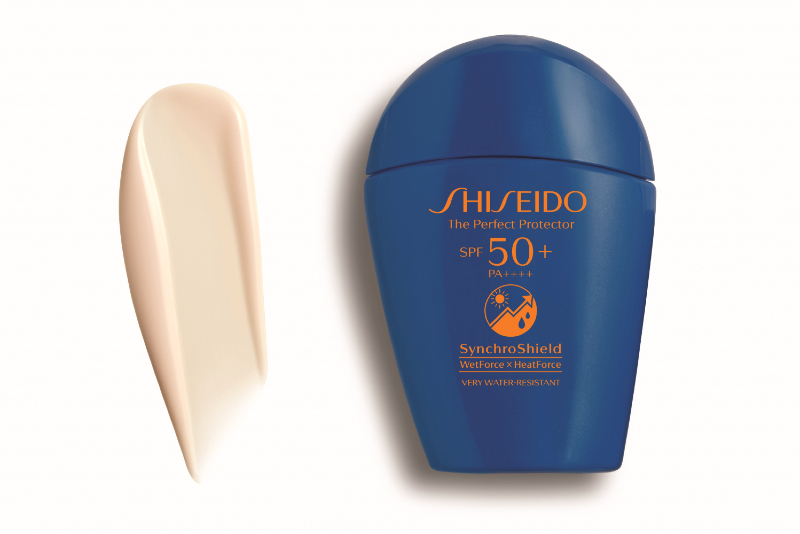
Suncare, a key component of Shiseido’s product range, lends itself to the project aim of protecting the health and beauty of the oceans. The Perfect Protector, for example, has a veil that becomes even stronger when it detects heat, water or perspiration.
Shiseido Malaysia managing director Elaine Too says the brand’s new suncare is ushering in changes that care for both consumers and the environment. “We will continue to support Reef Check’s projects to conserve our marine resources.”
Reef Check Malaysia general manager Julian Hyde says support from corporations and companies such as Shiseido benefits its marine conservation programmes, which take time to bear fruit.
“Conservation needs a local presence — you can’t protect coral reefs in Pulau Tioman from an office in KL. So, we have established long-term programmes and teams in various locations, including Redang, Perhentian, Tioman, the Mantanani Islands in Sabah and Mersing in Johor, to provide a base from which we can engage with stakeholders — islanders, tourism operators and schools, to involve them in activities that not only raise awareness about coral reef conservation issues, but also involve them in hands-on action, such as net removal and reef restoration.”
20200s728_peo_shiseido_md_elaine_too_5_ky.jpg
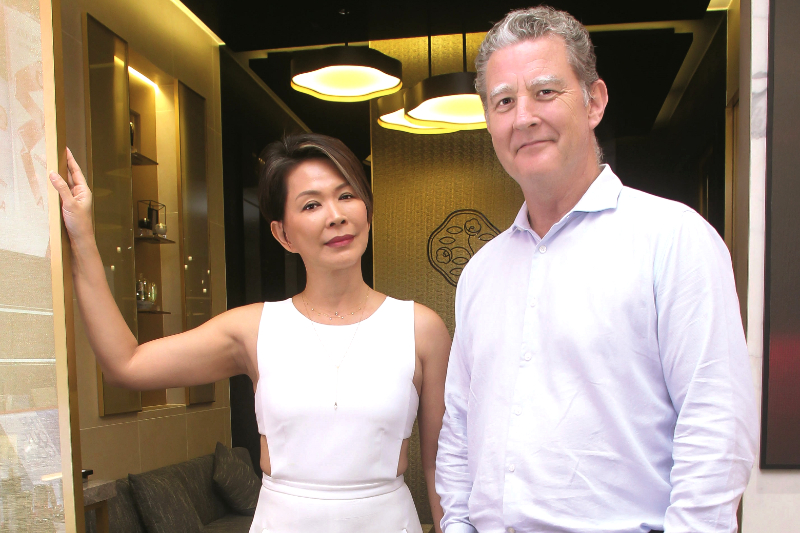
Every year, volunteers go to 200 reef sites around the country to check on their health. “Certain indicators tell us how healthy a reef is — such as the amount of live corals — and how much it has changed from last year and the year before. The surveys tell us what’s going wrong and what we need to do to fix it. All our other programmes are built on top of that basic data.”
The surveys are carried out mostly by volunteers because Reef Check Malaysia, set up in 2007, has only a 15-member team. On average, it trains 50 to 60 divers yearly, and works closely with the government, resorts and the dive community, which Hyde estimates at 50,000-strong, to create marine conservation awareness.
Divers can be briefed on the damage they can cause in the water, often unwittingly. They can be given buoyancy training or be better supervised while taking photos, for example. But the process of getting information across is slow and frustrating, compared with how easily corals are harmed.
Corals also propagate very slowly; the fastest-growing species will grow maybe 10cm a year. Some grow 0.5cm to 1cm a year. “Imagine a big coral reef that is 500 to 700 years old. If you drive a boat or throw an anchor into it, it’s not going to recover tomorrow,” Hyde says.
reef_check_survey_.jpg
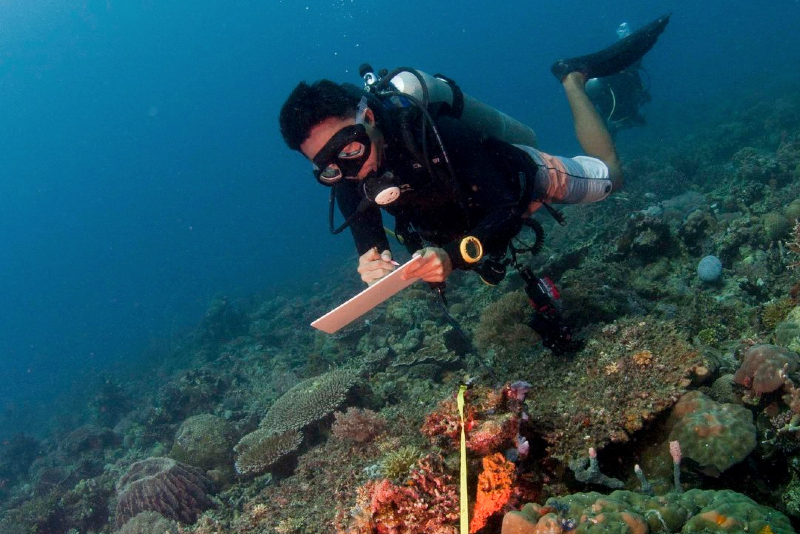
The best approach is to avoid damaging the outcrop in the first place, and marine parks and resorts can help by telling visitors who cannot swim to wear a life jacket because they are going to a spot where the coral is deeper than they can stand to get a good look at it, but not close enough to do any harm. “But people are not doing that and they are physically damaging the reefs.”
Trash is another major problem. Taking people to a beach covered with plastic trash helps them to understand the need to be more careful with plastic use and disposal. There is also a beneficial effect on ecosystems: removing the trash, even if only periodically, means it is no longer polluting and damaging marine ecosystems, Hyde says.
Reef Check wants to use Shiseido’s brand strength to improve local waste management efforts. “All small islands have a problem with managing trash, and the more tourists they receive, the bigger the problem. In all our programme locations, we look at how we can improve waste management, mainly through recycling schemes for plastics, as these are one of the most difficult things for communities to manage.”
In Mantanani Besar, where it is expanding a trial waste scheme to the whole island, the group has rescued more than 50,000 plastic bottles and prevented them from being thrown into the sea. “We need to expand these efforts to raise awareness and change habits, but also put in place infrastructure to make waste segregation and recycling easier.”
reef_check_at_mantanani.jpg
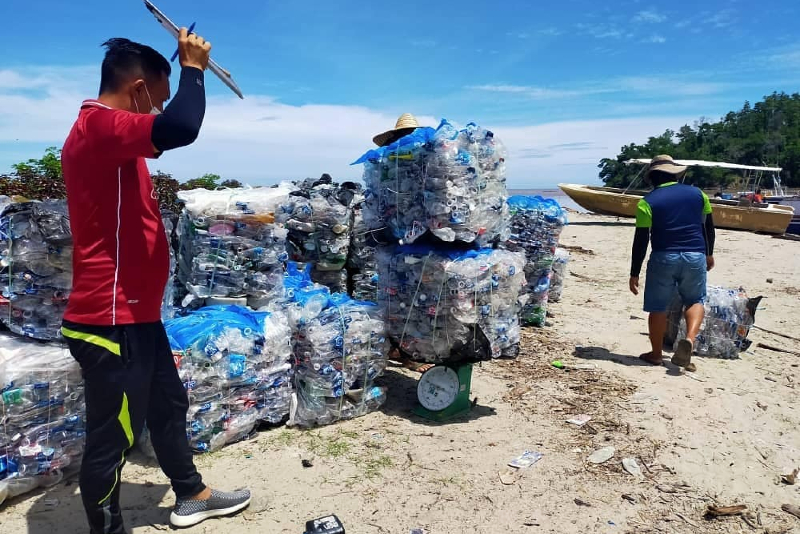
There is also a need to address tourism numbers and tourism management, Hyde adds, as more people in the water inevitably means more damage. Again, education is important, as well as programmes to reduce the impact of tourism across the board, including diving.
Another problem is getting the marine conservation message across to those not exposed to marine life. Unlike forests, visible when you look out the window, people in the city may not go to the islands. So, Reef Check is using food to link them to its programmes.
“Garoupa is a reef fish — it grows on the corals. They will disappear if their habitat is gone. Other fish that we eat spend some of their lifecycle on the reefs and some time in deep water. Again, no reefs, no fish,” Hyde explains.
With Malaysians’ love for eating and brands such as Shiseido reminding consumers to respect the oceans, Reef Check hopes to preserve the ecosystem services that reefs provide to society.
This article first appeared on Aug 3, 2020 in The Edge Malaysia.


